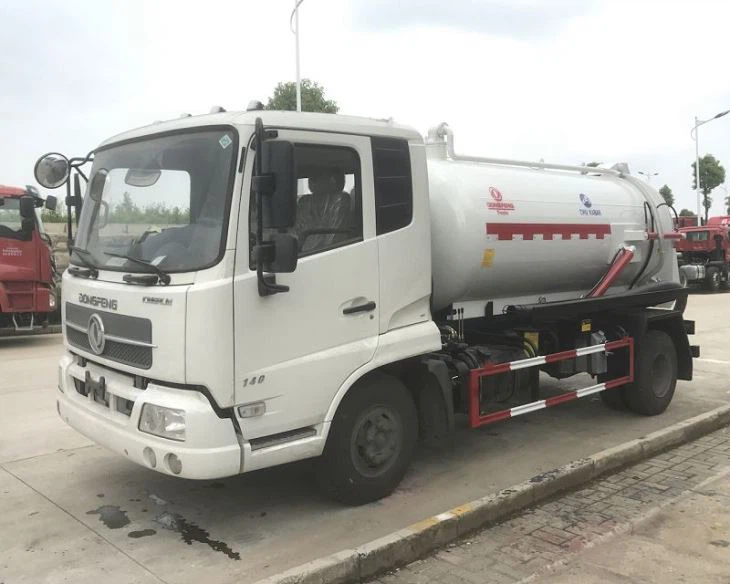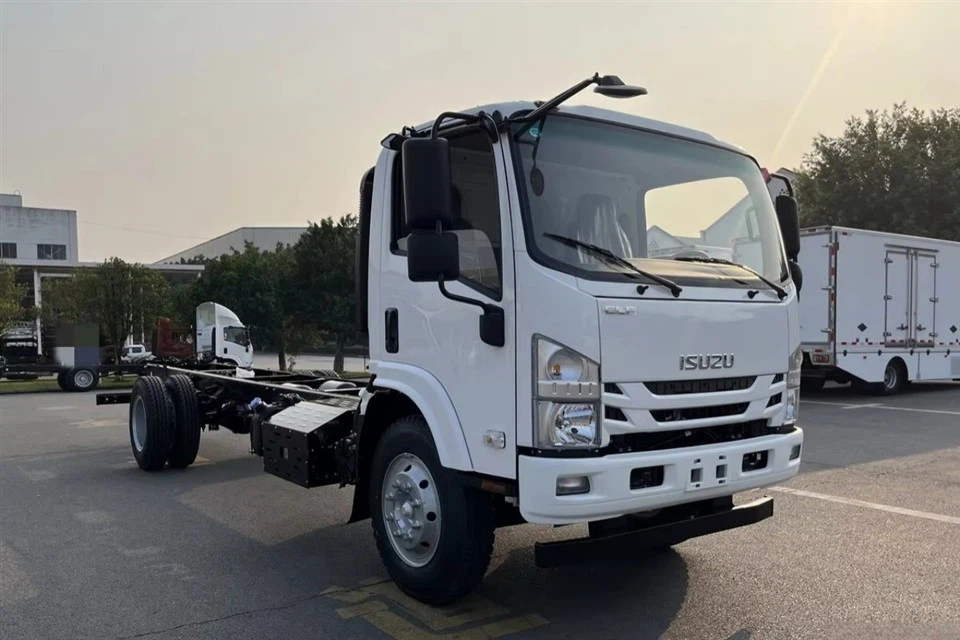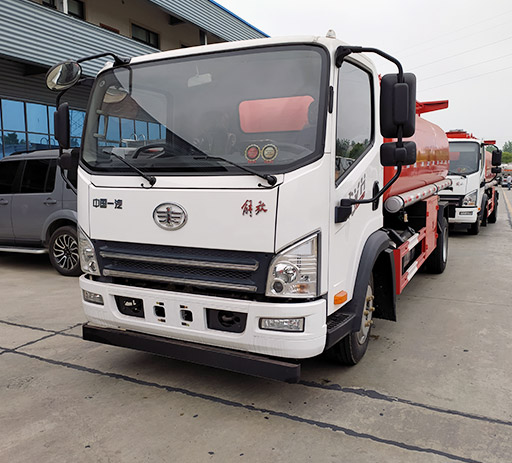Tech Trucks: Revolutionizing the Future of Transportation

The evolution of technology has impacted every sector, and the transportation industry is no exception. Among the most significant innovations in this field is the emergence of tech trucks—vehicles equipped with advanced technology that enhances efficiency, safety, and connectivity. In this article, we will explore the various aspects of tech trucks, their benefits, features, and the impact they have on logistics and transportation.
What Are Tech Trucks?
Tech trucks refer to trucks that are integrated with advanced technologies, such as artificial intelligence (AI), Internet of Things (IoT), and telematics systems. These vehicles are designed to improve operational efficiency, ensure safety, and provide better communication and data analytics capabilities. Tech trucks can be found in various segments, including delivery trucks, freight carriers, and even recreational vehicles (RVs).
The Evolution of Trucks and Technology
A Brief History of Trucking
The trucking industry has undergone a substantial transformation over the last century. From horse-drawn wagons to gas-powered trucks, the advancements have set the stage for the emergence of tech trucks. The introduction of diesel engines in the mid-20th century brought about enhanced efficiency and power, paving the way for the current technological revolution.
The Role of Technology in Modern Trucks
Advancements in technology have led to significant changes in truck design and function. Key technologies that have influenced the evolution include:
- Telematics: Integration of communication and monitoring systems that provide real-time data about vehicle performance.
- GPS Navigation: Enhances route planning and delivery efficiency.
- Active Safety Features: Technology such as lane departure warnings, automatic emergency braking, and adaptive cruise control.
- Electric and Autonomous Drives: Electric powertrains and self-driving technology are revolutionizing how goods are transported.
Benefits of Tech Trucks
1. Enhanced Efficiency
Tech trucks maximize operational efficiency through optimized routing and load management. With advanced GPS and routing software, drivers can avoid traffic delays and reduce fuel consumption, leading to lower operational costs.
2. Improved Safety
Technology plays a critical role in enhancing safety. Features such as collision avoidance systems and real-time vehicle monitoring help prevent accidents and allow for quicker accident response times.

3. Real-Time Data Analytics
With IoT integration, tech trucks can provide valuable data for fleet management. This data includes vehicle performance metrics, driver behavior analysis, and fuel efficiency, which can help operators make informed decisions.
4. Environmental Benefits
Many tech trucks are manufactured with a focus on sustainability, including electric or hybrid options. This helps reduce emissions, contributing positively to environmental conservation efforts.
5. Better Driver Experience
Tech trucks often feature improved ergonomic designs and advanced amenities. Technologies such as adaptive navigation and driver-assist systems make long-haul driving more comfortable and less stressful.
6. Enhanced Connectivity
With 5G and other connectivity technologies, trucks can maintain constant communication with dispatchers, allowing for dynamic route changes and better customer service.
Key Features of Tech Trucks

1. Advanced Safety Systems
Tech trucks come equipped with various safety innovations, including:

- Automatic Emergency Braking Systems (AEBS)
- Blind Spot Monitoring
- Lane Keeping Assist
- Adaptive Headlights
2. Fleet Management Systems
For businesses with multiple trucks, fleet management systems provide comprehensive tracking and management solutions, facilitating better logistics and reduced overhead costs.
3. Telematics
Telematics systems allow managers to monitor fleet operations, track driver hours, and ensure compliance with regulations such as the Electronic Logging Device (ELD) mandate.
4. Electric Powertrains
Electric trucks are becoming popular due to their low operating costs and reduced environmental impact. They are equipped with sophisticated battery management systems that optimize range and charging time.
5. Autonomous Driving Technology
While still in development, autonomous trucks promise to reshape the industry by potentially reducing the need for human drivers and minimizing human error.
Popular Tech Trucks on the Market
| Truck Model | Key Features | Target Use |
|---|---|---|
| Tesla Semi | Electric Powertrain, Advanced Autopilot, Enhanced Safety Features | Long-Haul Freight |
| Freightliner Cascadia | Detroit Connect Suite, Fuel Efficiency Systems, Customizable Cockpit | Highway Logistics |
| Rivian R1T | All-Electric, Smart Technology Integration, Off-Road Capabilities | Recreational and Commercial Use |
| Volvo VNL 860 | Optimized Aerodynamics, Advanced Safety Features, Efficient Fuel Economy | Long-Distance Hauling |
Challenges Facing Tech Trucks
1. High Initial Cost
While tech trucks offer long-term savings, the upfront costs can be significant. This can be a barrier for smaller fleets or independent operators.
2. Technological Reliance
As trucks become more technology-dependent, issues related to system failures or cybersecurity threats could also arise, creasing risks for fleet operators.
3. Regulatory Challenges
The introduction of autonomous trucks raises legal and regulatory questions, while vehicle automation must comply with changing regulations across states and countries.
The Future of Tech Trucks
1. Continuous Advancements in AI and Machine Learning
Future tech trucks will likely leverage more sophisticated AI and machine learning to improve energy efficiency, route planning, and predictive maintenance.
2. Integration of 5G Networks
The roll-out of 5G technology will enhance connectivity, allowing for real-time data sharing and quicker decision-making capabilities for logistics companies.
3. Emphasis on Sustainability
With increasing regulatory pressure and consumer demand for sustainability, tech trucks will likely continue to evolve to include greener options, such as hydrogen fuel cells and more efficient electric models.
4. Expansion of Autonomous Driving
The coming years may see a rise in the use of autonomous trucks on highways, with vast implications for labor and transportation industries.
Practical Tips for Choosing a Tech Truck
1. Identify Your Needs
Consider what you will primarily use the truck for—freight, delivery, off-road, etc.—and choose a model that meets those specifications.
2. Evaluate Total Cost of Ownership
Look beyond the sticker price and factor in fuel costs, maintenance, and any tax incentives available for electric or tech-integrated trucks.
3. Research and Test Drive
Conduct thorough research on models and manufacturers, and arrange test drives to evaluate handling, comfort, and features.
4. Consider Driver Comfort
Select a truck that prioritizes ergonomic design and driver assist technology to ensure comfort on long hauls.
FAQ
1. What are the main features of tech trucks?
Tech trucks typically come equipped with advanced safety features, telematics systems, AI integration, and enhanced connectivity options.
2. Are tech trucks more expensive?
Yes, tech trucks often have a higher upfront cost due to their advanced features, but they can lead to long-term savings on fuel and maintenance.
3. What does telematics do in tech trucks?
Telematics systems monitor vehicle performance, track usage, and provide data for fleet management, helping operators optimize their logistics.
4. Are tech trucks environmentally friendly?
Many tech trucks, especially electric and hybrid models, focus on reducing emissions and promoting sustainability.
5. Will autonomous trucks replace human drivers?
While autonomous trucks may become more common, they are not likely to fully replace human drivers in the near future, as human oversight will still be necessary in many situations.
6. How can I choose the right tech truck for my business?
Consider your specific needs, the vehicle’s total cost of ownership, and prioritize test drives to assess comfort and handling.
